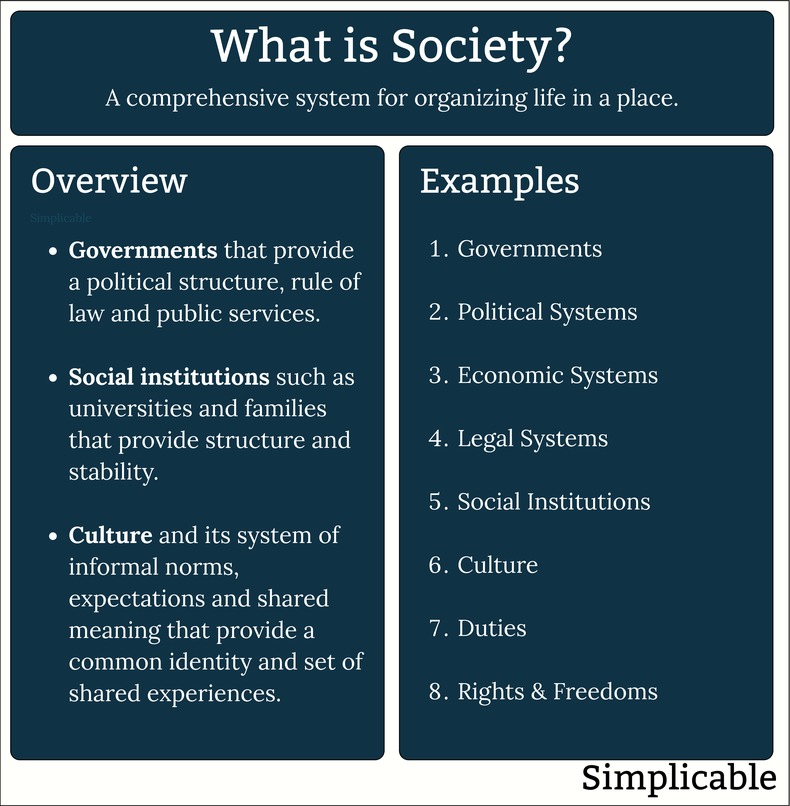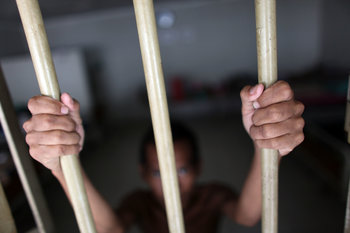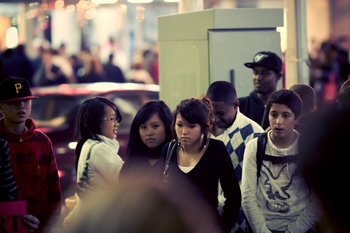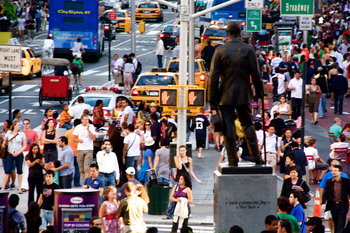
Definition
A society is a comprehensive system for organizing life in a place.Examples
Nations such as the United States, China or France.Communities such as the Amish of North America that provide a comprehensive system for life in a place.Total institutions such as prisons resemble societies.Components
A society includes all the primary systems, institutions and culture that govern life in a place including:National Constitutions & Charters | Political Systems |
Economic Systems | Legal Systems |
Justice Systems | Education Systems |
Defense | Public Infrastructure |
Public Services | Government Departments |
National Culture | Institutions Such as Families |
Society vs Nation
All nations are societies but not all societies are nations. A society can include communities and institutions that heavily govern life within the context of a nation.Society vs Culture
Societies include formally defined systems such as political systems and laws. Cultures emerge with shared experience and aren't centrally controlled or defined. For example, a language is culture because it isn't directly controlled by a government but rather emerges and changes over time with a process of communication, media and social interaction.A society can include culture such as a national culture or language. However, society is a much larger concept than culture.Society vs Civilization
A civilization is an advanced society. This term is also used to refer to multiple societies that have common heritage such as Western civilization -- meaning societies that have shared heritage with Europe.Other Meanings
An organization or club devoted to a purpose or activity.Upper class social groups. In this context "society" is a short form for "high society."Summary
Society are the systems and institutions that organize life in a geographical place.


























